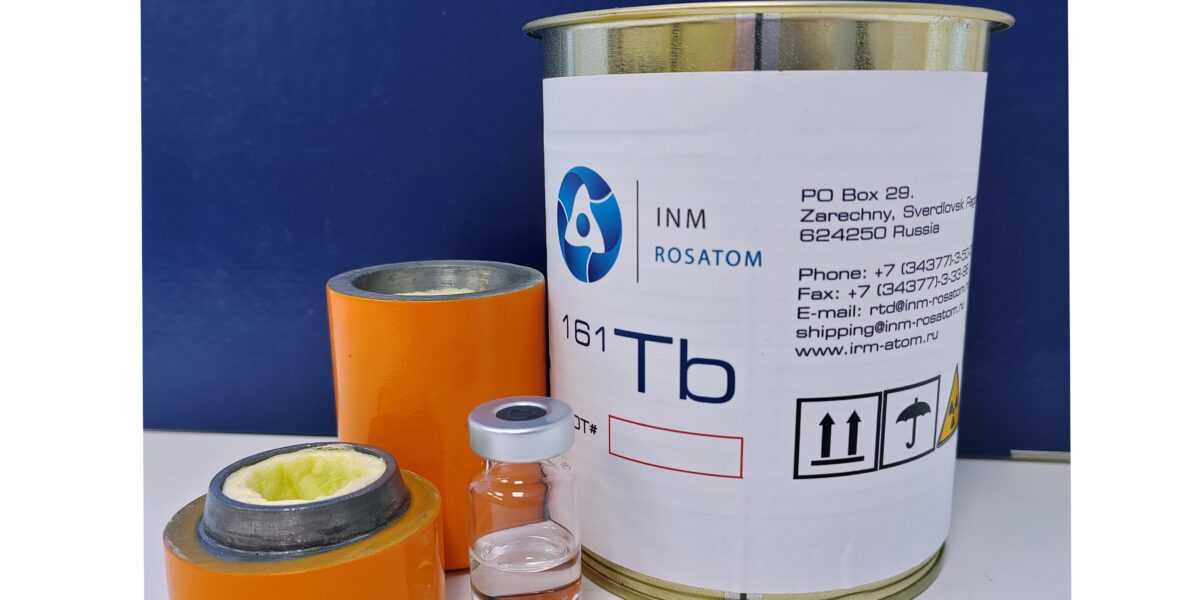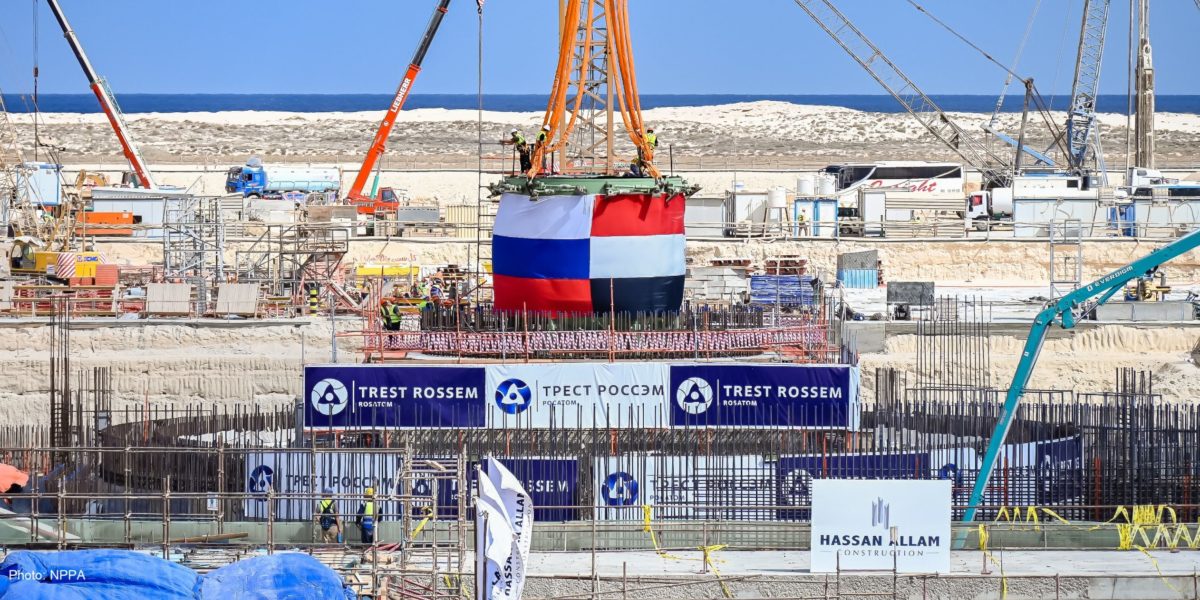Scientists at the Research Institute of Nuclear Materials (INM JSC, belongs to Rosatom’s Scientific division) in Zarechny, Sverdlovsk Oblast, have developed a technology for the production of terbium-161 isotope (effective in treating cancerous tumors). Russia did not produce this medical isotope before. The therapeutic effect of terbium-161 (as part of a radiopharmaceutical) is due to the emission of beta particles and Auger electrons. The plan is to start the production of a wide range of new-generation radiopharmaceuticals based on this new radionuclide.
INM JSC provided a pilot batch of the new product to the A.M. Granov Russian Scientific Center for Radiology and Surgical Technologies of the Russian Ministry of Health for testing purposes. This St. Petersburg-based center is devoted to radiology, the development of radiopharmaceuticals, and research in oncology and atomedics.
“Preclinical studies have shown that the dose of terbium-161 is, on average, 1.5 times higher than that of similar pharmaceuticals. This allows for a reduction in the amount of radiopharmaceutical administered compared to those based on lutetium as well as for reduced patients exposure and irradiation of healthy organs and tissues,” said Andrey Stanzhevsky, Dr. habil. med., Associate Professor, Deputy Research Director at the A.M. Granov Russian Scientific Center for Radiology and Surgical Technologies of the Russian Ministry of Health.
Researchers are currently investigating the potential uses of this isotope. Its distinctive physical and chemical properties, as well as its wide radiation spectrum suggest a possibility of developing a variety of radiopharmaceuticals for treating various types of tumors and other conditions that require high precision radiotherapy in the future.
Reference
The A.M. Granov Russian Scientific Center for Radiology and Surgical Technologies of the Russian Ministry of Health is a leading medical research institution in the country. The Center is devoted to radiology, surgical techniques, and the development of radiopharmaceuticals. It carries out extensive research and development work in the fields of oncology and nuclear medicine with the goal of improving the quality and accessibility of cancer care in Russia.
Rosatom’s scientific division is engaged in innovative fundamental and applied research with a focus on advancing both nuclear and non-nuclear technologies such as the closure of the nuclear fuel cycle, thermonuclear fusion, and nuclear medicine. The division also works on science-intensive technologies for both nuclear and other sectors. It consists of 13 research institutes and commercial companies including IPPE JSC, RIAR JSC, LUCH JSC, Giredmet, the V.G. Khlopin Radium Institute, and others. They possess a robust research infrastructure and in-house pilot production facilities, allowing them to implement a scientific idea from basic research to design development and prototype creation. The majority of the division’s scientific research and development efforts are taken within the context of the general industrial thematic plan. The scope of the division encompasses testing, development of high-tech medical equipment and innovative construction materials. The division is running projects aimed at commercializing promising science-intensive technologies. www.niirosatom.ru
The Research Institute of Nuclear Materials, Joint-Stock Company, (INM JSC, Zarechny, Sverdlovsk Oblast) is a nuclear center specializing in material science that was founded in 1966. The institute carries out reactor testing and post-reactor research for the nuclear industry adhering to the highest standards in its work. The facility boasts a robust manufacturing infrastructure, including the IVV-2M research reactor for isotope production, hot cells, radiochemical equipment, and a workshop for the manufacturing of irradiation devices.
Isotope – Regional Alliance, Joint-Stock Company (Izotope JSC) is the industry’s integrator specializing in the distribution and marketing of Rosatom’s isotope products, being the exclusive distributor of Rosatom's isotope network on the global market, and a key supplier of the isotope products to the domestic market. Isotope JSC has a vast network of partners, including 170 foreign companies based in 50 countries worldwide, as well as approximately 600 Russian companies. These include medical facilities, manufacturing companies, and scientific institutions. Currently, Rosatom offers the world’s widest range of radioactive and stable isotopes for medical applications. Diagnostic and therapeutic services based on Rosatom’s products are provided to over 2.5 million patients around the world annually.
Today, the Russian nuclear sector produces the world’s widest range of medical radioactive and stable isotopes used to diagnose and treat over 2.5 million patients each year around the world. The industry’s integrator, Regional Alliance, Joint-Stock Company (Izotope JSC), provides these products for both domestic and international markets. Its partner network consists of 170 foreign and approximately 600 Russian companies, including manufacturing companies, medical facilities, and research institutions.
The starting material for the production of terbium-161 is the isotope gadolinium-160 produced by another Rosatom subsidiary, Elektrokhimpribor. The starting material base is supposed to allow the state-owned company to develop a reliable and effective production chain for this product.
Relevant departments and large Russian companies attach great importance to improving the level of healthcare and accessibility of the advanced medical services. Large Russian companies provide their support for the comprehensive modernization of the healthcare system and development of the relevant infrastructure. Rosatom and its companies are actively involved in these efforts.





